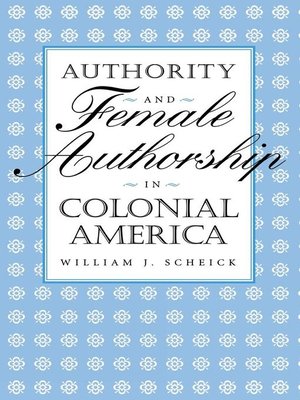
Sign up to save your library
With an OverDrive account, you can save your favorite libraries for at-a-glance information about availability. Find out more about OverDrive accounts.
Find this title in Libby, the library reading app by OverDrive.



Search for a digital library with this title
Title found at these libraries:
| Loading... |
Should women concern themselves with reading other than the Bible? Should women attempt to write at all? Did these activities violate the hierarchy of the universe and men's and women's places in it? Colonial American women relied on the same authorities and traditions as did colonial men, but they encountered special difficulties validating themselves in writing. William Scheick explores logonomic conflict in the works of northeastern colonial women, whose writings often register anxiety not typical of their male contemporaries. This study features the poetry of Mary English and Anne Bradstreet, the letter-journals of Esther Edwards Burr and Sarah Prince, the autobiographical prose of Elizabeth Hanson and Elizabeth Ashbridge, and the political verse of Phyllis Wheatley. These works, along with the writings of other colonial women, provide especially noteworthy instances of bifurcations emanating from American colonial women's conflicted confiscation of male authority. Scheick reveals subtle authorial uneasiness and subtextual tensions caused by the attempt to draw legitimacy from male authorities and traditions.






